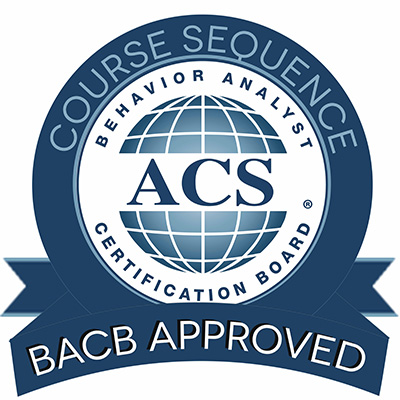About the Program
The School Psychology Doctoral program at the University of Utah is accredited by the American Psychological Association and approved by the National Association of School Psychologists.
Students can gain credentials such as Board Certified Behavior Analyst (BCBA) and receive training in areas like behavioral assessment, traumatic brain injury, autism spectrum disorder, and school-based mental health.
Program Handbook
Download our Program Handbook
Program Objectives
The program maintains a set of five goals which are supported by appropriate objectives and competencies. These goals, objectives and competencies form the basis for professional practice in school psychology. Competencies are established and promoted through coursework, supervised practicum and internship experiences.
Goal 1 Assessment
Students will understand and apply foundational knowledge and clinical skill in the identification and diagnostic study of individual students in a non-biased, reliable and valid manner.
Goal 1 Objectives
Objective 1A: Students will demonstrate the ability to define strengths, needs, and problem areas
of clients across multiple disabilities, diverse settings, and contexts using a variety
of assessment procedures.
Objective 1B: Students will demonstrate the ability to interpret psychological results, make inferences
about assessment data, develop recommendations based upon psychological data, and
write psychological reports.
Goal 2 Intervention
Students will acquire knowledge and skill in evidence-based individual, group, and school level remediation strategies, interventions, and psychoeducational program planning.
Goal 2 Objectives
Objective 2A: Students will demonstrate knowledge and skill in evidence-based behavioral/cognitive-behavioral interventions and remediation strategies on an individual, group, and school level.
Objective 2B: Students will develop knowledge and skill in evidence-based academic interventions and remediation strategies on an individual, group, and school level.
Objective 2C: Students will demonstrate knowledge and skill in systems-wide prevention and intervention, and crisis intervention.
Goal 3 Consultation
Students will demonstrate knowledge of consultation and supervision models and skills to effectively serve as consultants to teachers, parents and other educational personnel on matters related to the education and mental health of children and adolescents to insure the most appropriate education program.
Goal 3 Objectives
Objective 3A: Students will demonstrate appropriate communication and listening skills when consulting
with professionals and parents.
Objective 3B: Students will demonstrate knowledge and ability to use appropriate consultation and supervision techniques for prevention and intervention planning, professional development, progress monitoring, and program evaluation.
Objective 3C: Students will effectively employ culturally and ethnically sensitive consultation and supervision with teachers, parents, and/or other mental health professionals.
Goal 4 Research and Inquiry
Students will be able to review, apply, conceptualize/design and carry out research that enhances the knowledge base and the professional practice of school psychology.
Goal 4 Objectives
Objective 4A: Students will demonstrate knowledge and skill completing research on selected topics associated with typical and atypical development, risk and protective factors in child development, efficacy and effectiveness of psychological and behavioral health interventions and effective instructional practices.
Objective 4B: Students will demonstrate knowledge and skill needed to become consumers of research and advocates for research/evidence-based practice.
Objective 4C: Students will demonstrate competency in preparing research manuscripts for dissertations,
professional presentations and publications.
Goal 5 Ethical, Social and Professionally Responsible Practice
Students will demonstrate a comprehensive understanding of state, federal and setting-specific laws and policies; ethical and practice standards of APA and NASP; and use appropriate decision making strategies in training and professional contexts.
Goal 5 Objectives
Objective 5A: Students will demonstrate understanding and practice of legal, ethical, and professional practice/decision-making, including self-evaluation and accountability.
Objective 5B: Students will demonstrate culturally responsive practice and advocacy for diversity and social justice.
Objective 5C: Students will demonstrate advocacy for school psychology services.
Board Certification in Behavior Analysis Specialty Track
The School Psychology Program at the University of Utah offers a specialty training
track in Applied Behavior Analysis. This track offers Education Specialists and doctoral School Psychology students
additional training in applied behavior analysis, and ultimately provides the required
coursework and practica to meet eligibility standards to sit for the Board Certified
Behavior Analyst (BCBA) exam. This specialty track is provided in collaboration with
the Department of Special Education. It is important to emphasize that the track is
not designed to supplant the required general course of study in School Psychology.
Rather, in addition to completing the general requirements of the School Psychology
Education Specialists or doctoral program, students in this track will complete selective
courses to fulfill their BCBA requirements, and will receive specialized practica
and internship placements that will enable them to acquire BCBA specific skills. Education
Specialists and doctoral students can apply for the specialty track in the spring
of their first year, and are eligible contingent on academic standing. Upon acceptance
into the BCBA specialty track, the student's advisor helps the student design a course
of study for track.
Analysis. This track offers Education Specialists and doctoral School Psychology students
additional training in applied behavior analysis, and ultimately provides the required
coursework and practica to meet eligibility standards to sit for the Board Certified
Behavior Analyst (BCBA) exam. This specialty track is provided in collaboration with
the Department of Special Education. It is important to emphasize that the track is
not designed to supplant the required general course of study in School Psychology.
Rather, in addition to completing the general requirements of the School Psychology
Education Specialists or doctoral program, students in this track will complete selective
courses to fulfill their BCBA requirements, and will receive specialized practica
and internship placements that will enable them to acquire BCBA specific skills. Education
Specialists and doctoral students can apply for the specialty track in the spring
of their first year, and are eligible contingent on academic standing. Upon acceptance
into the BCBA specialty track, the student's advisor helps the student design a course
of study for track.
For more information about the BCBA specialty track contact Dr. Aaron J. Fischer, Ph.D., BCBA-D
Attend an Information Session
These informational sessions will provide you with important information about our program. What professionals in these careers do, the job outlook, program requirements, admissions requirements, and the admissions process.
Information sessions will be held using the on-line Zoom videoconferencing platform. You will need a computer (or similar device) with audio/video capability and the ability to download/install the Zoom software. Upcoming sessions:
- Monday September 15 from 1:30-2:30pm
- Thursday September 25 from 10:00-11:00am
- Thursday October 2nd from 11:00am-12:00pm
- Wednesday October 15 from 3:00-4:00pm
- Friday November 14 from 11:00-12:00pm
Our Faculty

Kayleigh Brennan
Assistant Professor (Clinical)
EASSC Clinical Director
Educational Psychology

Kate Helbig
Assistant Professor
School Psychology Director
Educational Psychology
Profile for Kate HelbigAdjunct and Clinical Faculty
The following individuals have official appointments as Adjunct School Psychology Faculty and currently provide on-campus teaching and/or supervision of school psychology students:
Deborah Bilder, MD
Heidi Block, Ph.D.
Julie Bowen, Ph.D.
Natalie Buerger, Ph.D.
Julia Connelly, Ph.D.
Candace Dee, Ph.D.
Lori DeKeyzer, Ph.D.
Paige Dubrow, Ph.D.
Fulvia Franco, Ph.D.
Joann Galloway, Ph.D.
Abby Gottsegen, Ph.D.
Alicia Hoerner, Ph.D.
Najmeh Hourmesh, Ph.D.
Heather Lewis, Ph.D.
Sara Mathis, Ph.D.
Kai Mendenhall, Ph.D.
Meghan McCormick, Ph.D.
Cassandra Romine, Ph.D.
Lane Valum, Ph.D.
Emeritus Faculty
William Jenson, Professor Emeritus
Dan Olympia, Professor Emeritus
